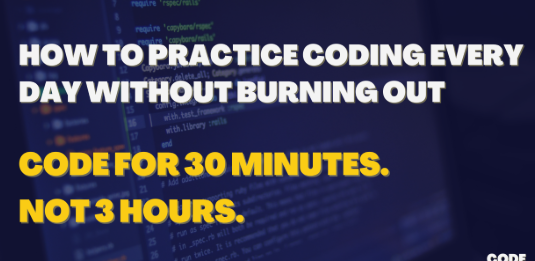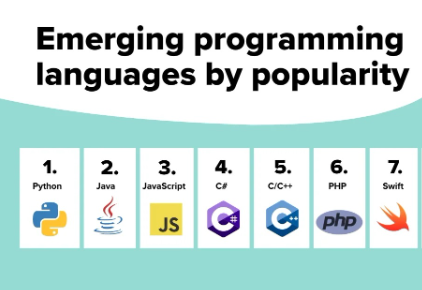
How to Practice Programming Every Day (Without Getting Bored)
Learning to code isn’t just about reading syntax or watching tutorials—it’s about practice.
But let’s be honest: coding every day can feel repetitive, frustrating, or even boring if you don’t mix things up.
In this guide, you’ll learn how to build a daily coding habit that keeps you engaged, motivated, and actually enjoying the process.
We’ll cover fun projects, daily coding challenges, GitHub tips, and more.
Why Practice Every Day?
Like learning a language or musical instrument, coding is a skill that improves with daily repetition.
Here’s what consistent practice helps with:
- Builds muscle memory for syntax and logic
- Increases problem-solving speed
- Develops real-world project confidence
- Makes you job-ready faster
But… consistency doesn’t mean boredom. Let’s explore fun ways to code daily.
1. Do Daily Coding Challenges
A great way to practice logic and algorithms is by solving small, focused problems each day.
Try these platforms:
- LeetCode – For job interview-style problems
- HackerRank – Great for beginners and students
- Codewars – Practice by solving ranked puzzles (called “katas”)
- Exercism.io – Great mentorship and language variety
Tip: Set a 15–30 minute timer and treat it like a brain workout.
2. Build Mini Projects (1-Week Max)
Solving problems is great, but building projects shows you how to think like a developer.
Easy project ideas to try:
| Project | What You’ll Learn |
| To-Do List App | HTML, CSS, JavaScript, localStorage |
| Calculator | Logic building, user interface basics |
| Weather App | APIs, JSON, fetch requests |
| Personal Portfolio | HTML, GitHub Pages, CSS styling |
| Quiz App | DOM manipulation, event handling |
Related: How to Choose Your First Programming Language
Challenge: Build 1 new project every week for 30 days!
3. Use GitHub to Track Progress
Treat GitHub like your coding diary.
Simple GitHub practice tips:
- Upload even small projects or daily challenges
- Write meaningful commit messages (Add login validation)
- Use a README to describe what your project does
- Star interesting repos and follow devs you admire
Bonus Tip: Start a “100 Days of Code” GitHub repo and post your daily progress. It keeps you accountable.
Related: Best Code Editors and IDEs for Beginners
4. Try “Theme Weeks” to Stay Curious
Instead of repeating the same task daily, focus on a new topic or theme each week.
Example Plan:
- Week 1: JavaScript Basics + DOM manipulation
- Week 2: Build a simple game (like Tic-Tac-Toe)
- Week 3: Learn about APIs and fetch real data
- Week 4: Style with CSS frameworks (Bootstrap, Tailwind)
This keeps things fresh and expands your skill set naturally.
5. Join a Coding Community
Surround yourself with other learners to stay inspired.
Where to go:
- Reddit: r/learnprogramming, r/coding
- Discord: Search “developer” or “100 Days of Code” servers
- Twitter/X & LinkedIn: Share your code, connect with devs
- freeCodeCamp Forum: Get help and feedback
Pro Tip: Pair up with someone doing the same challenge and review each other’s code weekly.
6. Gamify Your Coding Habit
Make your coding habit fun and rewarding:
- Use apps like Habitica or Streaks to track your coding goals
- Set daily goals: “Solve 1 problem”, “Push 1 commit”, “Write 10 lines”
- Reward yourself: coffee, YouTube break, or leveling up your project
Psychology tip: Even small rewards trick your brain into building habits faster.
7. Challenge Yourself Publicly
Accountability = motivation.
Here’s how:
- Join the #100DaysOfCode challenge on X/Twitter
- Post your daily progress on GitHub, LinkedIn, or a blog
- Create a blog series like:
- “Day 1: JavaScript Variables”
- “Day 15: Built My First Weather App!”
Related: Top 5 Free Platforms to Learn Coding
Sample 7-Day Beginner Coding Practice Plan
| Day | Focus | Time |
| Monday | Solve 1 easy coding problem | 30 min |
| Tuesday | Watch 1 YouTube tutorial and follow along | 40 min |
| Wednesday | Build a small feature (e.g., navbar toggle) | 45 min |
| Thursday | Try a challenge on Codewars | 30 min |
| Friday | Push your code to GitHub | 15 min |
| Saturday | Work on a mini project | 1 hr |
| Sunday | Rest or review your week’s progress | — |
Final Tips to Stay Consistent
- Keep your sessions short and focused (30–60 mins max)
- Use a checklist or habit tracker
- Avoid burnout—rest is also part of learning
- Don’t compare your progress. Just show up daily.
Even 20 minutes a day is enough to build real skills over time!


